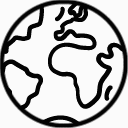

In 2017, WWF Turkey with partners started a cleaner production movement in the Buyuk Menderes river basin, supported by the WWF H&M Group partnership. Following the initiative, WWF Turkey and the partnership released a guide demonstrating clean tech best practice to encourage other textile suppliers and brands to invest in clean tech.
The textile industry is of big economic and social importance for several regions in Turkey. An example is the Denizli province where the textile sector accounts for 30% of the employment and 60% of the home textile exports.
The textile sector in Denizli and other surrounding provinces are reliant on water from the Buyuk Menderes river basin. However, due to climate change and increasing competition on water from the textile industry and other sectors, including their release of wastewater, the water in the river basin is under pressure.

“To tackle this challenge, WWF launched a program in partnership with H&M Group, aiming to transition textile factories to cleaner production processes. The program involved awareness trainings and provided financial support mechanisms by the regional development agency for suppliers investing in clean tech,” said Eren Atak, Freshwater Program Manager, WWF Turkey.
Feasibility studies were conducted with H&M Group suppliers in Buyuk Menderes and Ergene basins, and potential interventions for water, energy and chemicals savings that these facilities could implement were provided.
WWF and H&M Group compiled four of these feasibility studies and results from clean tech investments in H&M Group fabric mills suppliers together with best available techniques for the textile industry in the “Cleaner Production Guide for the Textile Sector”. The guide, released in 2018, aims to contribute to spreading and scaling cleaner production practices in the textile industry.
The program shows that cleaner production is a good investment for companies and environment, and the purpose of the guide was to spread that message and to make clean tech more accessible. The initiatives have been well received, indicating that there is both a need for and interest in learning more
EREN ATAK, FRESHWATER PROGRAM MANAGER, WWF TURKEY
The WWF H&M partnership supported further efforts in Turkey, and local partnerships with Chamber of Industry and the regional development agency (GEKA) mobilized textile companies to invest in cleaner production: Investments of 6,5 million EUR from seven companies led among other things to 1,5 million m3 water savings in 2018.
Factories that have invested in clean tech have shown remarkable results in terms of reduced costs, reduced use of resources and wastewater – leading to less negative impact on water resources.
GEKA also launched an investment grant support program for cleaner production in 2019, where six textile dyehouses received total 300k USD grant support from the agency which resulted in 570.000m3 of water and 200.000 kwh energy savings, equivalent to water consumption of 100 households annually.
The cleaner production model
The cleaner production model includes using less water, less energy and fewer chemicals in production as well as reducing wastewater. This lowers costs while reducing negative impacts on water resources. Less harmful substances also mean a safer working environment for textile workers.
Feasibility studies showed that for most applications, investment costs were recuperated between one and three years. Improved production processes meant cost savings of on average 200 000 USD per year. If fifty factories in Buyuk Menderes were to invest in cleaner production, a total of 10 million USD could be saved every year.
